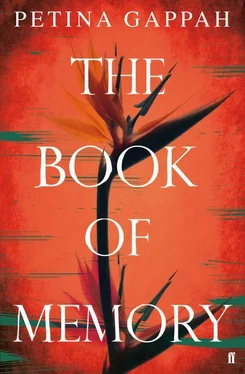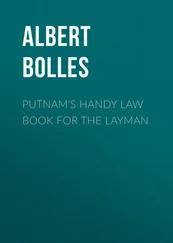We were intimate with the ways of our neighbours and they with ours. Little happened that did not invite the scrutiny and commentary of the township. We knew when our neighbours were having chicken, and they knew when we were having matemba . We knew that, at one end of Mharapara, Nhau’s mother habitually burned the meat as well as we knew that there would be no meat smells from the kitchen of the Malawian family at the other end, who seemed to live on Lacto sour milk.
What we did not see and smell ourselves, we got from our most gossipy neighbour, MaiWhizi. No one entered any yard on Mharapara without her knowledge. She had countless relatives with endless virtues. She ended up being related to most people on the street because she had an uncle or a nephew or a muramu who had just that minute arrived from kumusha , he was looking for a job, he would get a good job, it was just a matter of time before he got a very good job, an excellent job, and all he wanted was a good wife to cook for him.
Vero, who lived next door but one to MaiPrincess, married MaiWhizi’s husband’s youngest brother. She had set her eyes on Rispah, MaiNever’s aunt’s daughter, for her own aunt’s eldest son, but Rispah fell pregnant. MaiWhizi knew about Rispah’s shame before anyone, down to the names, heights and ages of all the inhabitants of the house in Mugaragunguwo Street to which Rispah had fled to escape the wrath and shame of MaiNever, Ba’Never and her parents.
For all that she knew more about Mharapara than any of us, MaiWhizi was more capable of astonishment than anybody else. She compared everything shocking or startling, anything surprising or unexpected, to a bioscope. ‘Ah,’ she exclaimed, and put her hands together in a quick clap in front of her face before quickly releasing them, ‘Zvariri bhais’kopu!’ She spent hours polishing her veranda red with Sunbeam polish or wiping her windows. When MaiWhizi’s curtains twitched, you knew that something was happening.
Although they later became fast friends, MaiNever once threatened to beat up MaiWhizi because she told MaiPrincess that MaiNever’s husband had been seen at a shebeen in Mbare. ‘Ba’Never vakasvikopikire chipostori zvariini?’ MaiNever shouted in Manyika. ‘Magemenzi andinobvire wonini, andinobvire wacha zuva ngezuva.’
MaiPrincess was also called MaiMaTwins because she had given birth to two sets of twins. She had six children under the age of twelve. She was the most pregnant woman that anyone had ever seen. She seemed always to have just given birth, be about to give birth or be feeding a child at her breast. Her first two children, the twin girls Princess and Pretty, were followed by their brother, Progress, then by a girl, Promise, and twin boys, Providence and Privilege. For all I know, she had more children after I left Mufakose. Perhaps she had a Prudence, a Praise or a Promotion. Perhaps she had a Prevarication or a Predestination.
MaiWhizi, MaiNever and MaiMaTwins talked to each other over their buckets of laundry. In the year that I left, they were obsessed with Peggy, the township ghost with red lips, a shining Afro and an alluring bottom. Peggy had been seen in Highfield and at Chitubu in Glen Norah, they said, and was now working her way up Kambuzuma Road to Mufakose.
‘She lured a man at Mushandirapamwe Hotel, hanzi they danced all night.’
‘When they got to his house she said he was not to light a candle.’
‘The next morning, he woke up in the graveyard, right on top of her grave.’
‘And he saw Peggy, but now she was a statue, pafungei ipapo, just a statue kneeling on the grave, just kneeling there, stiff as anything, kunge mukadzi wa Lot chaiye . Just like Lot’s wife.’
When they were not gossiping over the laundry, the township women tore the air with the names of their children.
‘Nhau! Princess! Never!’
‘Promise! Providence! Progress! Imi! Chiuyai mugeze!’
‘Whizi! Nhai iwe Wisdom! Urimatsisu?’
‘Run to MaiNever and give her this pot.’
‘Run to MaiPrincess and ask her for sugar.’
‘Run to MaiWhizi and tell her she is late.’
‘Run to MaiGivhi and give her this powder.’
‘Run to the tuck-shop utenge half-bread.’
‘Run to the tuck-shop and buy seven candles.’
‘Run outside and don’t bother me.’
‘Run away and don’t ask too many questions.’
‘Run along before I slap you.’
Run here, run there, run forward, run backwards. The children of the township were constantly moving dynamos, with fast legs but with heads often elsewhere, attending to the tasks at hand with half the mind on play. The ensuing recriminations would ring out across the street.
‘You have spilt the sugar!’
‘You silly child, you have squashed the tomatoes!’
‘Mazizheve anenge ababa! You have forgotten the bread!’
‘What do you mean, you dropped the money?’
Then the sound of a slap, or a walloping with the favoured instrument of the house concerned — a belt, a sjambok or the long, thin branch from a peach tree. Then would come wails and lamentations, ndagura, ndagura kani nhai Mhai, before the admonition to go out and play.
But the tears soon dried, and the pain was forgotten in chasing the Snowman ice cream man, in shouting, ‘Paribe musevenzo, paribe musevenzo ’, while dancing after SekuruAlexio, and in the dizzying round of play and games, rakaraka and nhodo, dunhu and pada , games that I did not play in the township where we lived.
*
The strongest memory that I have of the speya is the smell of Mobhi’s urine on the green-and-brown blankets hanging on the washing line outside our houses. I say our houses because those same urine-soaked blankets followed us to hang on other washing lines, as we moved from Mbare to Highfield before settling in Mufakose, from where I was sold, their green and brown stripes fading from the sun and washing. We were one short after Gift was buried.
I must have been three or four when Gift died. I read somewhere that long-term memory is linked to the left prefrontal lobe in the brain, which only develops after the age of three. I also read, perhaps in the same article, that memory is closely linked with the acquisition of language, that without verbal ability to articulate experience, there can be no memory, and this is why our earliest recollections date from the time we learn to speak.
So it may have been even earlier than that when my brother died. Or perhaps it is another child’s funeral that I remember, nothing to do with my brother at all. I never knew exactly how old Gift was when he died because no one talked about him, though his name was with us daily in the MaiGivhi and Baba Givhi that my parents called each other — apart from those moments when anger broke through the decorum of naming conventions and they called each other by their first names. It was a shock to us to hear them call each other Moira and Benson; it was almost like seeing them naked.
Our house, all our houses, had rickety doors and thin, thin windows that shook as the doors were opened and closed, and shook even harder when my mother banged them. There was a small garden around our house; there we had a banana plant. Our neighbours had half-attempted orchards with mango trees and, occasionally, naartjies. The gardens were only just big enough to grow small vegetable patches; however long people lived in the towns, agriculture, like an atavistic instinct, was still in their blood and drove them to plant crops and till the land even on these tiny plots.
MaiPrincess and her family, who lived next door, had a large avocado tree and wanted to keep each avocado to themselves, but we did not always give back the fruit that fell and rolled under the tarpaulin covering my father’s wood and tools. We mashed up MaiPrincess’s avocadoes and spread them on bread.
Читать дальше












